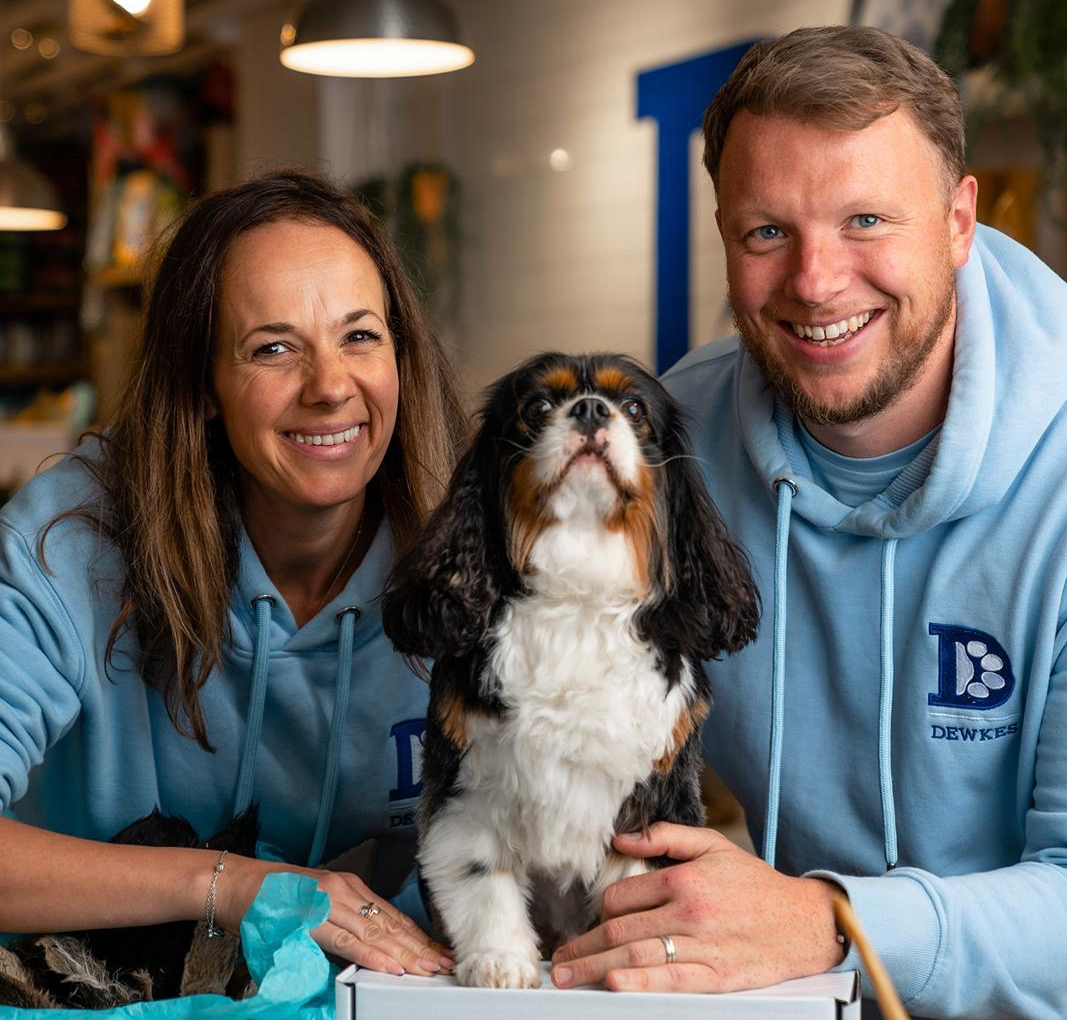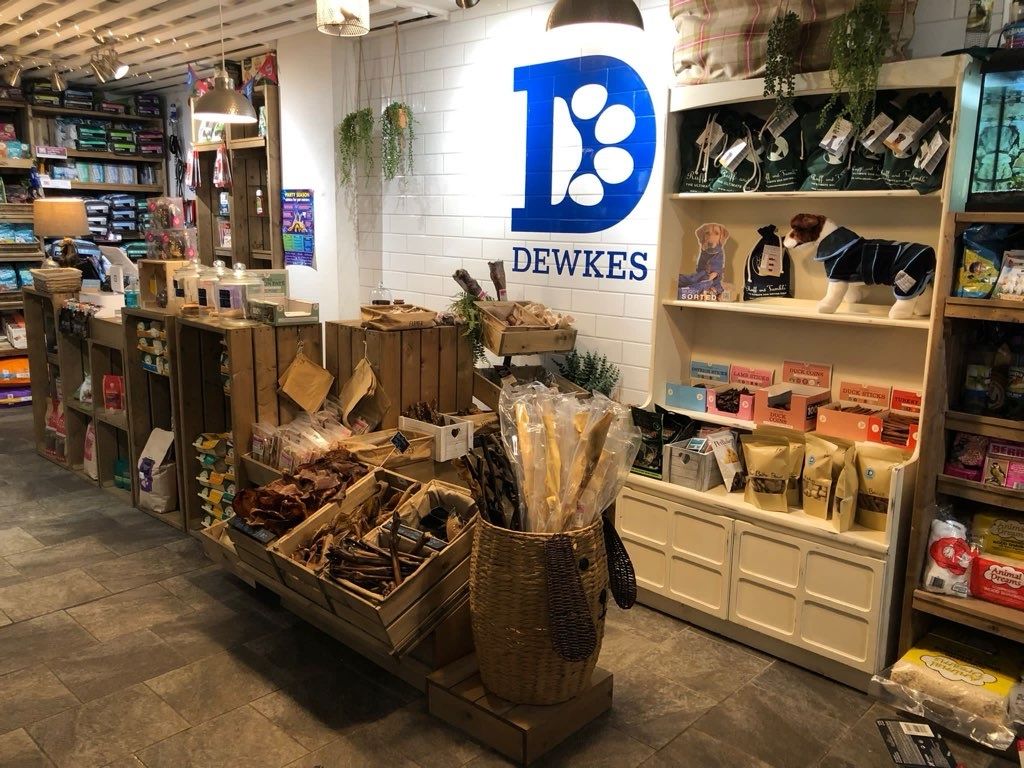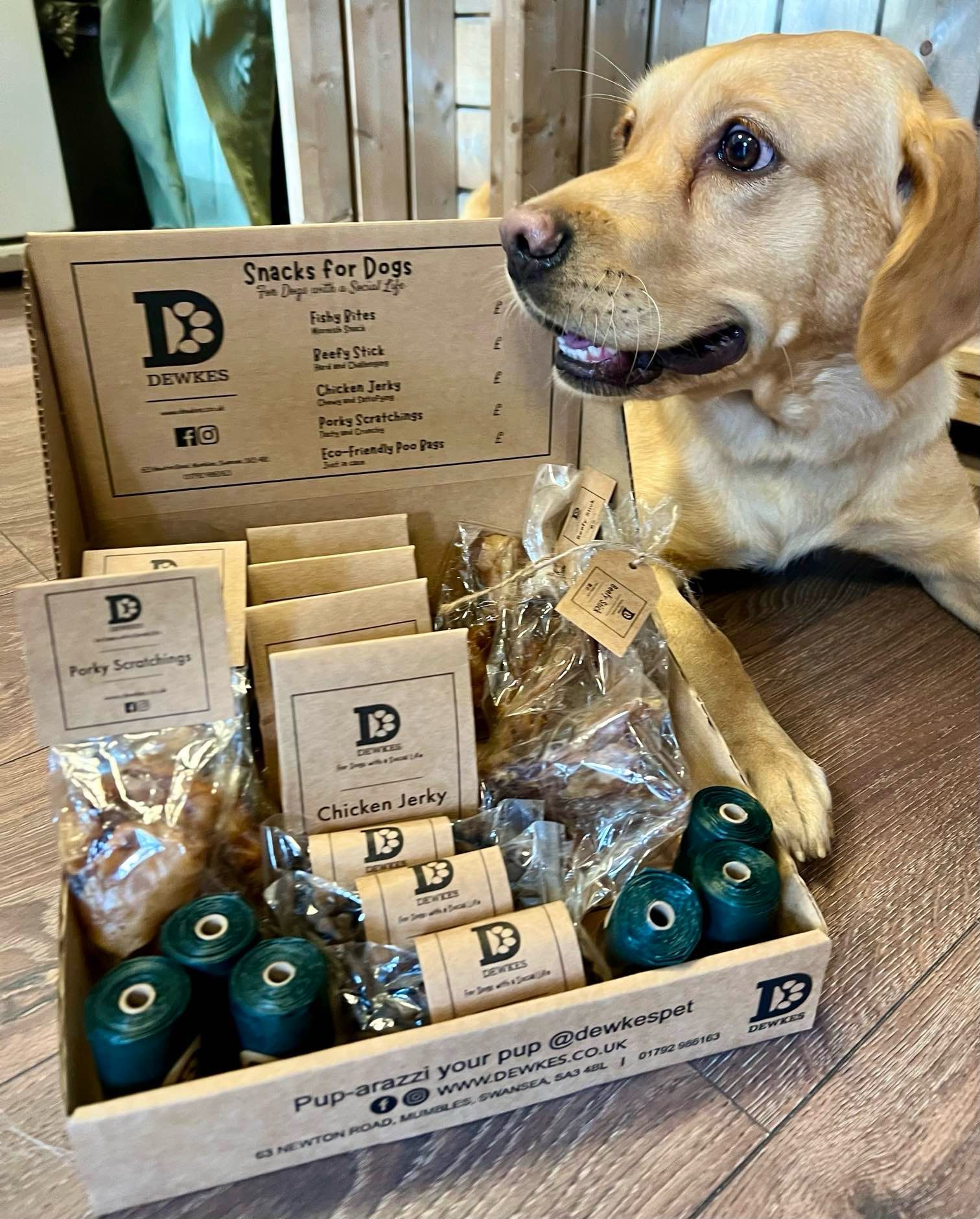Interesting Journeys Into Petpreneurship: James Bygate
In this episode of Interesting Journeys Into Petpreneurship, I talked to James Bygate the CEO of Dewkes Dog Snacks, about how the wonderful range of snacks he has created, and to uncover the real story behind his business.

Welcome to part seven of our series on Interesting Journeys Into Petpreneurship. This week, I have been talking to James Bygate, who started out as a pet shop owner before pivoting his business to create natural dog food snacks!
Bule: Welcome to the show, James! I appreciate you telling us your story.
Let's begin by discussing your background before moving into the pet industry.
James: My background is in finance, so I'm a chartered accountant by trade.
Bule: You were a number cruncher for the first part of your career?
James: I still am most days, but yeah, I was. I worked for a ‘big four’ auditor, then went to work for a non-profit for a little while.
Bule: Non-profit. Was that animal-related?
James: No, it wasn't. It was housing. Then, through a mutual contact, I moved into private equity. I worked in the motor trade for three or four years in private equity as part of a buy-and-build strategy. Then, I became a portfolio finance director for SMEs. When the pandemic hit, I decided to move into the world of pets.
Bule: A big move and a significant change! What prompted it?
James: I always had a passion for it. When I was in school and college, I wanted to be a vet, but that never panned out. I didn't get the grades I needed, so I became an accountant. I always knew from an early age that I wanted to work with animals. One of my clients was a pet food manufacturer when I was a finance director, so I had some contacts in the industry there. When the pandemic hit, I suddenly felt exposed. As a consultant, you always rely on yourself to generate income.
If you don't work, you don't get paid.
I wanted a different kind of business, so I made the change. The pandemic hit, and we opened our first pet shop in January 2021.
Bule: Did you start thinking about what you wanted to do before the pandemic?
James: Yeah, but the pandemic was the catalyst for change. The pandemic hit in March 2020, and the shop opened in January 2021.
Bule: But why did you decide to open a pet shop? What was the thinking around it before you settled on that?
James: I wasn't going to open a pet shop initially. I thought pet shops were kind of dated—metal racking, lost stock, so you couldn't see what you were looking at. Boutique pet shops existed in London, but outside of London, those boutique experiences were few and far between. I knew I wanted to open something like that. So we did. We opened our first shop in the seaside part of South Wales.
Bule: How did you come up with the name?
James: Our dog is called Duke, but we weren't allowed to use that spelling because it is a Royal title, so we called our company Dewkes.
Bule: That's fantastic; the business is named after your own dog!
Why did you choose that spot for your first location?
James: We lived here, and I saw an opportunity in the Mumbles, where our shop is. The type of dog owners there were conscientious, and there were a lot of dogs, especially post-pandemic. It would be a shop based on community and responsible dog ownership, with a boutique shopping experience.

The shop did really well and flew!
Bule: That's brilliant! So you grew up with an idea of what a pet shop was and knew that wasn't right; you had a better idea of what a pet shop should be?
James: Yes, community-based and focused on dog wellness, dog-led. The staff and I are always very good at focusing on the dog first, remembering customers by their dog. We don't sell something just because someone asks for it.
We tailor the advice to the need.
Bule: So, you're working towards educating your customers on what's best for them and their dogs rather than for your business's commercial interests.
James: Yes, and there's no reason those two things should be separate. The commercial aspects should follow if you create a nice ethos by generating good advice and looking after your customers. It's just another way of looking at it.
Bule: You've mentioned the pet shops we've grown up with. How do you differentiate? How do you stand out from what came before?
James: It's the look and feel. Our shops are like farmers' markets—boutique and all-natural. It's about conscientious and responsible pet ownership, nutrition-led rather than stuff that's not good for them.
We always knew that was the direction we were going.
Bule: You opened your first shop, and it took off clearly.
James: Yes, it did well.
Bule: Have you opened more shops since?
James: Yes, we've scaled. We opened another one in March 2022, 15 months later. It was a very different part of the city with a different demographic but still conscientious dog owners. It wasn't quite a ‘destination location’ like the first one, more high street.
Bule: What do you mean?
James: More high street, a slightly younger demographic. It was a shop you might pop into while passing by or if you knew you wanted something specific. The first one is in a ‘destination location’ by the sea with lots of tourists, so incidental shopping is more likely there.
Bule: So it was still successful but had a different growth trajectory than the first?
James: Correct. So we decided to put a dog-friendly cafe in front of the second pet store to give our customers another reason to visit. That's when the exciting stuff started to happen because that's when the wholesale side of our business was born. We noticed a disconnect between dog-friendly in name and dog-friendly in nature.
Bule: How so?
James: Many places call themselves dog-friendly, but all they do is put a metal bowl of water on the floor and maybe give the dog a treat. We felt that things could be better. So we created a tray of hospitality snacks, all-natural, grain-free dog snacks. We took them to 30 local businesses and asked if they would buy them.
It was a market test, and our approach was very professional. We made some very nice packaging, and the whole set looked uniform.

Bule: How did you do?
James: We sold to 30 venues from a standing start, which was brilliant.
Bule: I find that really interesting. So you started with one business, the pet shop, grew to open more shops, then pivoted out of that into dog food snacks?
Yes. You must be able to flex, change, and adapt.
Bule: Let's discuss that model. Are you making it easy for bars, pubs, restaurants, and cafes to incorporate a dog-friendly menu into their existing menus, enabling small businesses to become even more dog-friendly than they already are?
James: Yes, we talk about two sets of USPs—one for the end user (the dog owner and the dog) and one for the commercial part (the bar owner or cafe). Because of our background in pet care, we tailored the product offering based on our knowledge of our customers. We have 4,500 registered customers across two shops, which gave us 4,500 opportunities to talk to dog owners.
We asked them what treats they would like. We ended up with a tray of natural treats—hypoallergenic, grain-free, natural.

Bule: What are those two sets of USPs you mentioned specifically?
James: For the consumer, we talk about long chew time, single-source proteins, and better products for different dogs. For the bar owner, it keeps people there longer, increases basket spend, and provides an experience.
Many businesses have told us that becoming dog-friendly has changed their business. Some weren't dog-friendly before the pandemic and now go through one to two weekly trays during peak season; they are happy customers!
Bule: You're unlocking new revenue for them with a tray that sits on the bar?
James: They are cool wooden boxes, like little farmers' market boxes.
Bule: You've grown from 30 businesses locally to around 600 independents.
That's meteoric growth!
James: Yes, but there's still a vast untapped market. Another 10,000 customers are waiting for us. We've started getting into food service outlets and fine food.
Bule: You've launched gift boxes as well.
James: Yes, birthday boxes, gotcha boxes, and "sorry I left you at home" boxes. We're trying to keep new product development to a minimum, though, so we can better focus on adding stockists rather than more products.

Bule: By any measure, you're a successful petpreneur. What advice do you have for aspiring petpreneurs?
James: Passion is key. Passion makes things easier because running your own business is challenging. It's 24/7, 365 days a year. If you believe in your product, that's the main thing. Also, spend some time in the industry. Volunteer, work in dog shelters, or get a pet shop job to ensure you have that passion. It will also help you build up your experience if you have never worked in the industry.
Bule: You came from a different industry. What's it like working in the pet industry? What was the transition like?
James: Some things met my expectations—people passionate about animals. It's not as modern as I thought. The UK has a way to go in enhancing dog friendliness. The industry is quite fragmented, but there's a lot of opportunity. My background was very corporate and finance-focused, so it was a different industry.
Bule: What trends do you see emerging in the pet industry?
James: The humanization of pets is here to stay. People are spending more money on their dogs, and treating them as part of the family. I think the UK
is catching up with the rest of Europe when it comes to dog friendliness.
Bule: What kind of products are dog owners focused on?
James: People are focused on health, hygiene, nutrition, and entertainment for their pets. There's a downside to humanization, though, such as feeding pets human food. Education is needed.
Bule: And you placed your business firmly at the forefront of these trends?
James: Yes, we did.
Bule: What advice do you have for any aspiring petpreneurs?
James: Spend some time in the industry to make sure you have the passion. Volunteer, work in dog shelters, or get a job in a pet shop to experience it and build your awareness.
Bule: Do you want to give a shout out to any other pet startups you like?
James: There is a really cool business called Mr Bug that uses insect bug proteins to make dog treats. I also really like an app called Tuft; it's really useful when you need to find a groomer for your dog and handles the scheduling and payment.
Bule: Brilliant!
James, thank you so much for your time and for coming on to talk to me. I appreciated hearing the story of your business and your conversation.
James: My pleasure; thank you for having me on!
This concludes our interview. Please follow James Bygate on Linkedin, take a look at the wonderful dog snacks he creates on their website, and follow their business page on social media to keep up with their latest news and product launches!
You have just finished reading Part Six of our Interesting Journeys in Petpreneurship series; check out Part 1 featuring Niki French, Part 2 featuring Chloe Smith, Part 3 featuring Claire Harris, Part 4 featuring Mandy Madden, Part 5 featuring Rik Cridland, and Part 6 featuring Jason Duffy.


